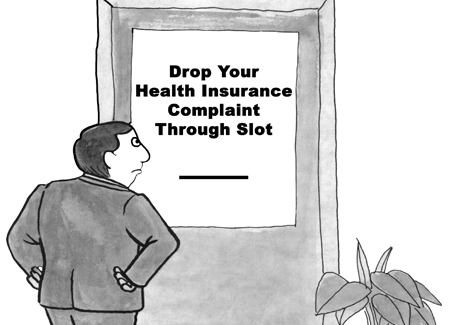Insurance debate: Patient anxiety over high medical costs

Politics aside, one fact that stands out through the ongoing debate on how we regulate health insurance is this: Patients are deeply concerned about the costs of their medical care.
A recently released study highlights these anxieties and how U.S. patients are dealing with them.
- Seventy-four percent say their health care costs have risen over the past few years.
- Fifty-three percent say a large medical bill they couldn’t afford would be just as bad as being diagnosed with a serious illness.
- Only 23 percent say they could afford a medical bill if it were more than $2,000.
- Fifty-six percent of people without insurance avoid going to the doctor.
- Fifty-five percent say they ask about the prices of services and procedures before booking the appointment.
Increase your patients’ understanding
The Urban Institute also released a study, this one in early March 2017, that offers another insight about medical debt: Twenty-three percent of adults with insurance have medical debt, versus 31 percent who did not. This reflects the reality of health insurance — in spite of it, patients still carry a significant cost burden, thanks to higher deductibles and co-pays.
Around the same time, the Urban Institute released a second study that reveals being financially savvy makes a difference in whether people carry medical debt. Patients who answered four or five questions correctly on a five-point financial knowledge quiz had less medical debt than those who answered zero or one question correctly — by a factor of 7 percentage points.
The authors point to the importance of preparation when it comes to medical debt:
“Financial knowledge might be especially important for medical debt because it is often the result of an unplanned event, unlike credit card debt, student loans and other types of debt. Weathering unexpected negative financial shocks can require making difficult decisions and relying on a cushion of resources that not all consumers have. For example, a medical bill might lead individuals to face an unexpected choice between accessing retirement savings and selling a car. Financial knowledge can help consumers prepare for these shocks. In particular, financial knowledge may help consumers understand the value of health insurance as a risk mitigation tool.”
The author’s study found limited benefits in educating high school students about medical debt, because it does not seem to be resonating with these young students at this time in their lives. A better time to do this is during the doctor visits. The billing office, for example, could take time to discuss with patients what the visit covers and what it doesn’t.
Choose the right accounts receivables partner
When patient accounts fall into past-due status, it can compound their stress and anxiety, especially if they have a high-deductible plan or they’re facing a long-term serious illness. While it’s important to recover the money you are owed for your services, you want patients to receive the same level of dignity they received under your care.
IC System has decades of experience with strong, ethical recoveries that aim to help you preserve the patient relationship. Learn more about our bad debt management practices today.
Need collection help?
Call us at 1-800-279-3511 to REQUEST PRICING!
About the Author: Brian Eggert
Brian Eggert is a business development specialist and writer for IC System, one of the largest receivables management companies in the United States. With 18 years in the collection industry, Brian's experience includes operations, client service, proposal writing, blogging, content creation, and web development.










